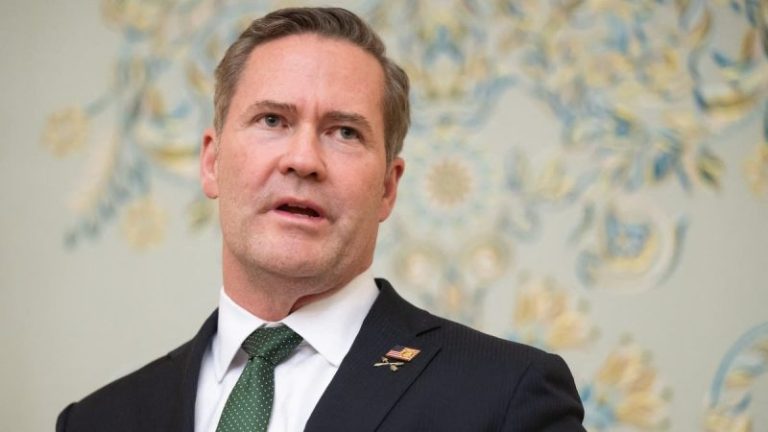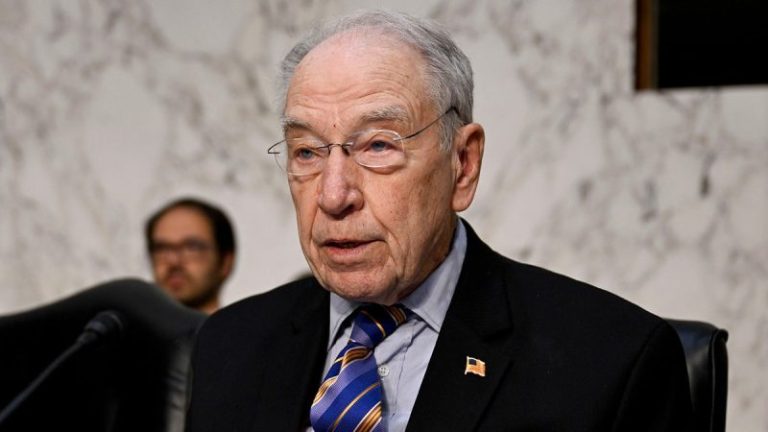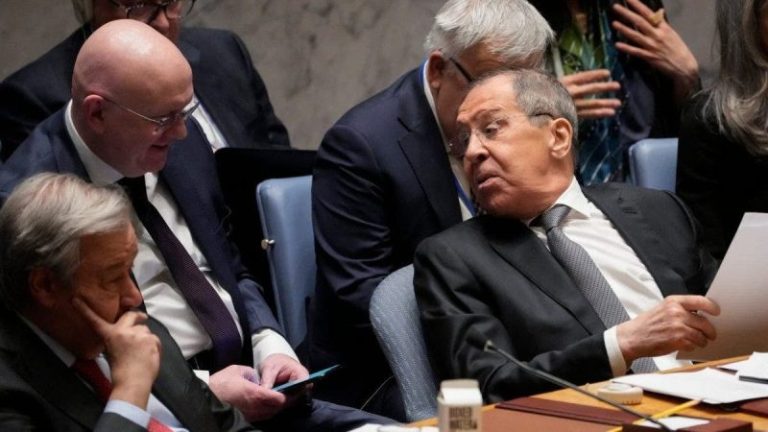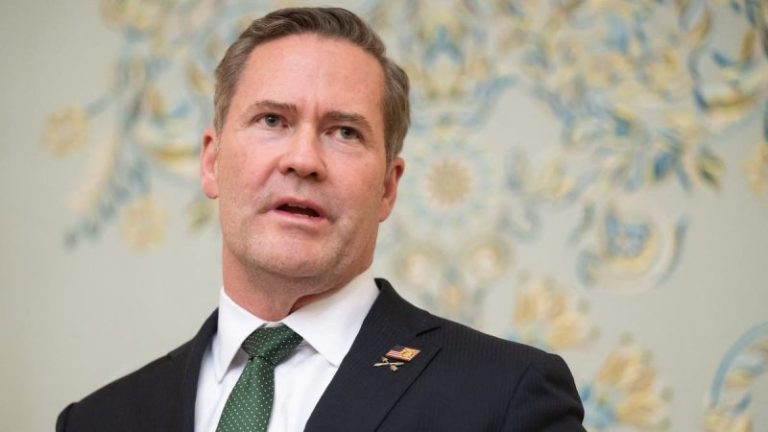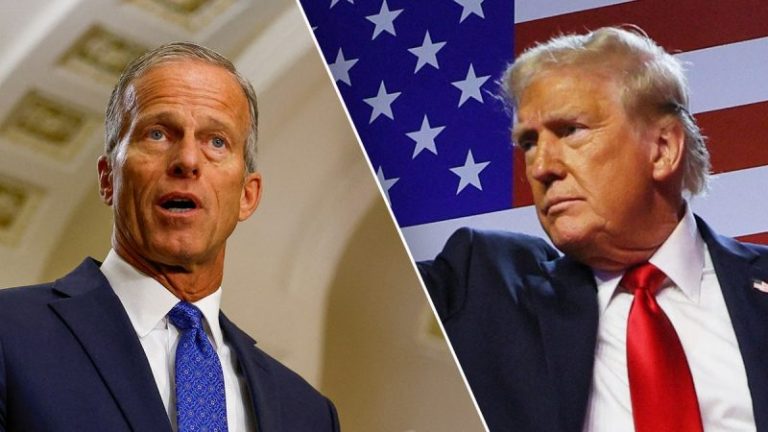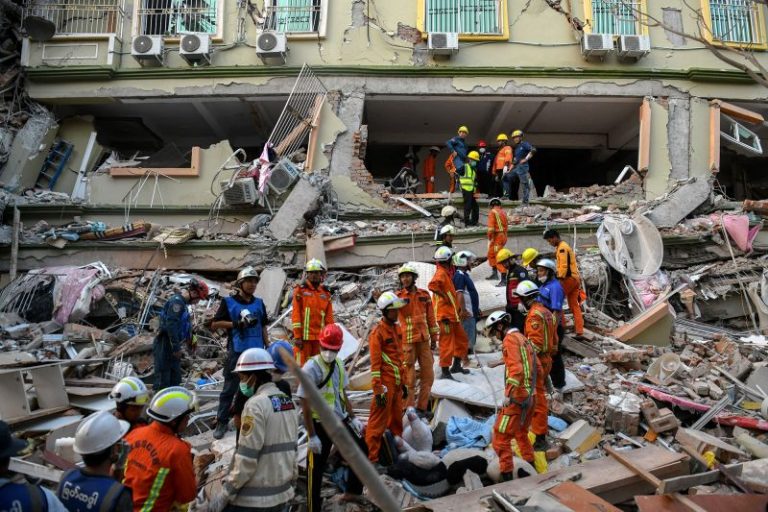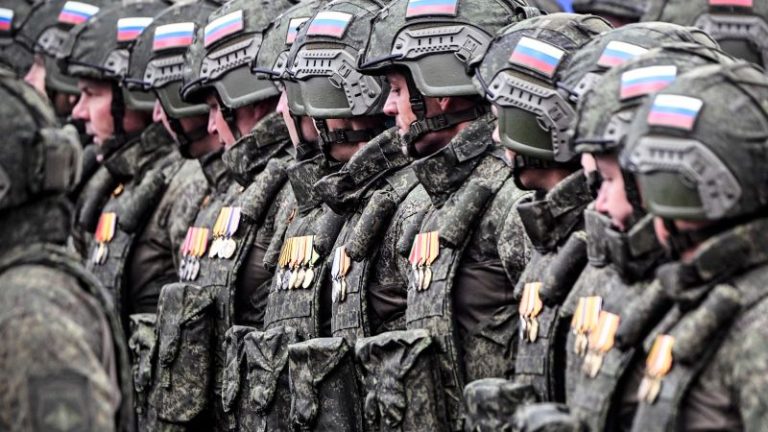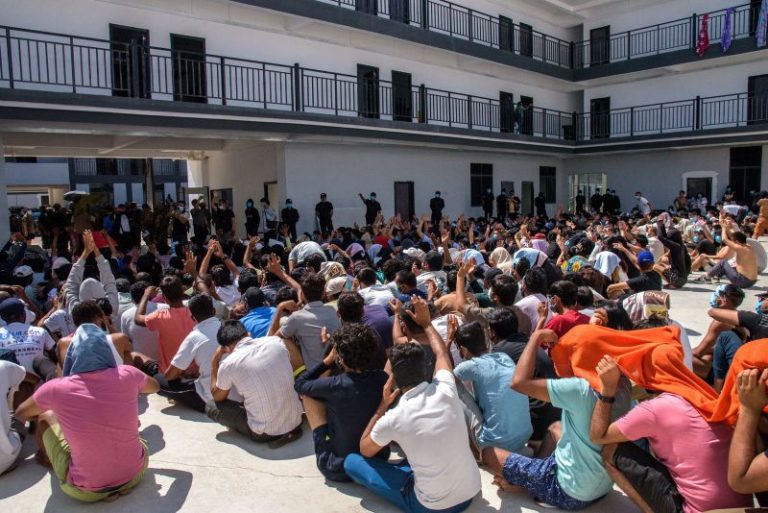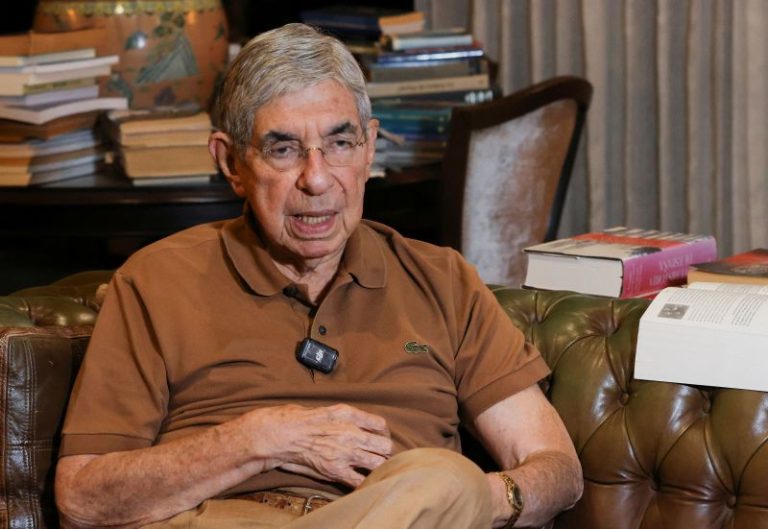President Donald Trump’s national security advisor, Mike Waltz, has repeatedly landed in hot water in recent days, beginning with an uproar from Democrats over a Signal chat leak with high-ranking national security officials that has since snowballed.
Trump and his administration, however, repeatedly have defended the national security leader publicly.
Waltz, who previously served as a Florida congressman and as a decorated combat Green Beret, has come under fire from Democrats and critics since March, when the Atlantic magazine’s editor-in-chief Jeffrey Goldberg published a firsthand account of getting added to a Signal group chat with top national security leaders, including Waltz, Secretary of Defense Pete Hegseth and CIA Director John Ratcliffe, while they discussed strikes against Yemen terrorists.
Signal is an encrypted messaging app that operates similarly to texting or making phone calls, but with additional security measures that help ensure communications are kept private to those included in the correspondence.
The Atlantic’s report characterized the Trump administration as texting ‘war plans’ regarding a planned strike on Houthi rebels in Yemen. The Trump administration has maintained, however, that no classified material was transmitted in the chat, with Trump repeatedly defending Waltz amid the fallout.
‘As the president has made it very clear, Mike Waltz continues to be an important part of his national security team,’ Trump administration press secretary Karoline Leavitt told the media in brief remarks outside of the White House’s press room Monday afternoon. ‘And this case has been closed here at the White House, as far as we are concerned.’
‘There have been steps made to ensure that something like that can obviously never happen again,’ she continued. ‘And we’re moving forward. And the president and Mike Waltz and his entire national security team have been working together very well, if you look at how much safer the United States of America is because of the leadership of this team.’
Fox News Digital has compiled a timeline of accusations and outrage directed at and involving Waltz since the Atlantic’s first report on the chat leak.
- March 24: The Atlantic publishes a report that Goldberg was added to a Signal chat that claimed national security leaders were discussing ‘war plans’ with one another.
- March 25: Trump tells NBC News he believes a staffer in Waltz’s office was behind mistakenly adding the Atlantic’s editor-in-chief to the group chat.
- March 25: Democratic outrage over the Atlantic article mounts, including Sen. Mark Warner of Virginia, the top Democrat on the Senate Intelligence Committee, calling on Waltz and Hegseth to resign.
- March 25: Director of National Intelligence Tulsi Gabbard and CIA Director John Ratcliffe join an annual Senate Intelligence Committee hearing and report no classified material was shared in the chat and that the Signal chat was ‘lawful.’
- March 25: Waltz joins Fox News and takes ‘full responsibility’ for the Signal chat leak. Waltz added that he ‘100 percent’ did not personally know Goldberg before the Signal debacle.’I take full responsibility. I built the group,’ Waltz said on ‘The Ingraham Angle’ March 25. ‘It’s embarrassing. We’re going to get to the bottom of it.’
- ‘I take full responsibility. I built the group,’ Waltz said on ‘The Ingraham Angle’ March 25. ‘It’s embarrassing. We’re going to get to the bottom of it.’
- March 26: Politico reports anonymous sources found Trump was irritated with Waltz over the leak, while the president publicly defended Waltz as ‘a very good man.’
- March 26: The Atlantic publishes a follow-up story that included direct texts from the Signal chat, but notably did not include the phrase ‘war plans’ in its headline, instead characterizing the texts as ‘attack plans.’
- March 26: Administration officials slam the Atlantic’s follow-up story as exposing a ‘hoax’ against Trump. Waltz also doubled-down that the Signal messages published in the Atlantic article did not include, ‘locations. No sources & methods. NO WAR PLANS.’
- March 26: Leavitt says Elon Musk and his Department of Government Efficiency team would help investigate the Signal leak.
- March 28: Politico reports Trump did not want to fire Waltz and ‘give the press a scalp,’ according to anonymous sources reportedly familiar with private discussions.
- March 30: Goldberg joins NBC News’ Kristen Welker and says Waltz’s claims the two had never met or spoken are ‘simply not true.’
- March 31: Leavitt declares Signal case is ‘closed,’ reiterating that ‘Mike Waltz continues to be an important part of his national security team.’
- April 1: Washington Post reports Waltz and National Security Counsel staff used Gmail to conduct government business. NSC spokesman Brian Hughes pushed back on the Washington Post report in a comment provided to Fox Digital Thursday:’This is the latest attempt to distract the American people from President Trump’s successful national security agenda that’s protecting our nation. Let me reiterate, NSA Waltz received emails and calendar invites from legacy contacts on his personal email and cc’d government accounts for anything since January 20th to ensure compliance with records retention, and he has never sent classified material over his personal email account or any unsecured platform.’
- ‘This is the latest attempt to distract the American people from President Trump’s successful national security agenda that’s protecting our nation. Let me reiterate, NSA Waltz received emails and calendar invites from legacy contacts on his personal email and cc’d government accounts for anything since January 20th to ensure compliance with records retention, and he has never sent classified material over his personal email account or any unsecured platform.’
- April 1: House Oversight Democrats open investigation into Waltz’s use of Gmail.
- April 2: Politico reports Waltz’s office set up at least 20 different Signal group chats to coordinate with other officials. NSC pushes back that Signal is allowed on government devices and is an app used by both the Biden and Trump administrations:’Signal is an approved, encrypted messaging app and any claim NSC officials sending classified information over these channels is false. It can be used for unclassified messaging and a user has the responsibility to preserve any official record created,’ Hughes said in Thursday comment provided to Fox Digital. ‘Some in NSC, like those in the media and many areas across the federal government, use the Signal app. There are federal agencies that automatically install the app on government devices, as was testified to in congressional hearings last week. Using Signal to send unclassified information is appropriate and these same facts have been reported multiple times in the last few days. All communications are a reflection of a thoughtful dialog of those committed to the effective implementation of the President’s agenda.’
- ‘Signal is an approved, encrypted messaging app and any claim NSC officials sending classified information over these channels is false. It can be used for unclassified messaging and a user has the responsibility to preserve any official record created,’ Hughes said in Thursday comment provided to Fox Digital. ‘Some in NSC, like those in the media and many areas across the federal government, use the Signal app. There are federal agencies that automatically install the app on government devices, as was testified to in congressional hearings last week. Using Signal to send unclassified information is appropriate and these same facts have been reported multiple times in the last few days. All communications are a reflection of a thoughtful dialog of those committed to the effective implementation of the President’s agenda.’
- April 3: The New York Times reports far-right activist Laura Loomer reportedly presented Trump with a list of National Security Counsel staff who have been disloyal and should be fired.
Fox News Digital reached out to the White House for comment on the matter, but did not immediately receive a reply.

